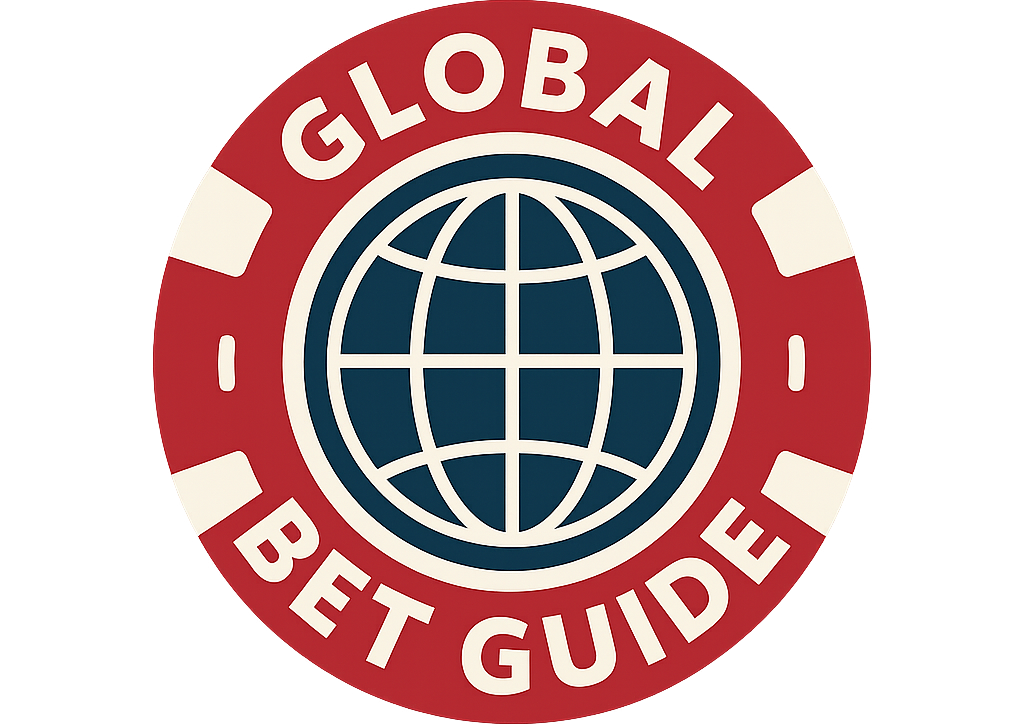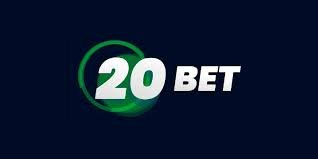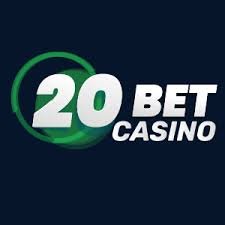Nigeria’s online casino market is experiencing significant growth, with regulated platforms generating an estimated USD 254 million in gross gaming revenue (GGR) in 2024. Industry analysts project an impressive 11% compound annual growth rate (CAGR) through 2029, signaling a robust expansion trajectory. This growth is supported by increasing internet penetration, with over 107 million Nigerians (45.4% of the population) having internet access by January 2025, while mobile connections have reached 150 million, representing approximately 64% of the population.
My recommended online casinos for Nigerians
-
Sign up bonusMulti-Deposit Welcome Bonus up to ₦20,000 bonus over first deposits Minimum deposit; wagering requirements typically 30x bonus+deposit; bonus codes subject to sequence; available exclusively in NigeriaLocalized for Nigerian market Multiple sports & casino options Mobile-first platform Local payment methodsSurebet247Join Now
-
Sign up bonus100% Welcome Bonus up to $200 + 50 Free Spins Terms apply. Wagering: 35x bonus+deposit; Minimum deposit $10; Bonus valid for 30 days; Free spins on selected games.Extensive sportsbook and casino offerings Crypto‑centric platform with fast, secure transactions Provably fair gaming system Modern, user‑friendly interface Generous promotions and VIP rewards Widely accepted in crypto‑friendly regions (Eastern Europe, Latin America, Asia, Africa, Australia/New Zealand)20BetJoin Now
The regulatory landscape underwent a fundamental shift following the November 22, 2024 Supreme Court ruling that invalidated centralizing provisions of the National Lottery Act, firmly establishing regulatory authority with state gaming bodies. Major states including Lagos, Oyo, and Enugu now issue licenses through their own Lotteries & Gaming Authorities, creating a decentralized regulatory framework.
Nigerian players expect fast-loading HTML5 slots and immersive live dealer tables—with instant ₦ deposits and reliable cash-outs. If you’re comparing payment options, start with our Payment Methods Guide and the Safe Deposits & Withdrawals Guide, plus a Nigeria-specific walkthrough for withdrawing sports-betting winnings.
Before you play, verify game integrity: understand RTP and RNG fairness so you can choose titles that match your risk tolerance. For more local insights, browse the Nigeria hub with guides and tools tailored to Naija players.
Regulatory & Licensing Framework
State-Level Licensing Post-Supreme Court
The Nigerian gaming landscape transformed fundamentally on November 22, 2024, when the Supreme Court struck down central provisions of the National Lottery Act 2005. This landmark ruling affirmed each state’s authority to regulate gaming activities through their own Lotteries & Gaming Authorities.
The Lagos State Lotteries & Gaming Authority (LSLGA) has emerged as the leader with the most comprehensive regulatory framework in the country. The LSLGA issues licenses across multiple categories, including online casinos, sports betting, promotional games, and lotteries. Other active regulatory bodies can be found in Oyo, Enugu, Rivers, and Abuja Federal Capital Territory (FCT), each implementing distinct fee structures typically tied to projected gross gaming revenue.
License Categories & Compliance
The regulatory framework encompasses several license types, including Casino, Poker, Bingo, and Instant-Win categories. All licensed operators must implement robust anti-money laundering (AML) and know-your-customer (KYC) protocols. This includes mandatory integration with Bank Verification Number (BVN) APIs, enforcement of age verification to ensure players are 18 years or older, and submission of periodic AML reports.
Technical compliance is equally important, with annual random number generator (RNG) and fairness audits required from recognized certification bodies such as iTech Labs or eCOGRA. These measures aim to ensure game integrity and player protection.
Emerging Federal Bill
Looking ahead, the draft Central Gaming Bill 2025 aims to harmonize the various state regulations into a unified federal code. This proposed legislation seeks to streamline the licensing process by reducing approval timelines to 10 business days or less, while also mandating stronger responsible gaming measures across all operators.
Market Overview & Growth Drivers
Revenue & Forecast
The Nigerian online casino market generated USD 254 million in gross gaming revenue in 2024, representing an impressive 18% year-over-year growth. Industry analysis projects an 11% compound annual growth rate through 2029, driven by expanding fintech adoption, ongoing 5G network rollout, and implementation of AI-driven customer support technologies.
Digital Infrastructure
As of January 2025, Nigeria counts 107 million internet users, representing 45.4% of the total population. Mobile connections have reached 150 million (64% of the population), with multi-SIM usage being common among consumers. The telecommunications infrastructure continues to improve, with 4G coverage now extending to 91% of populated areas, while 5G trials are underway in urban centers like Lagos and Abuja.
Fintech Adoption
Financial technology platforms are revolutionizing payment processing for online casinos in Nigeria. OPay alone processed ₦40 trillion in payments during 2024, serving 30 million active wallets. Other significant players in this space include PalmPay and Moniepoint, which together serve over 35 million users, facilitating quick deposits and withdrawals for online gaming platforms.
Player Profile & Behavior
The typical Nigerian online casino player falls within the 18-35 age bracket, with this demographic accounting for approximately 79% of online bettors. The gender distribution remains heavily male-dominated, with men representing roughly 80% of the player base. Geographically, urban centers such as Lagos, Abuja, and Port Harcourt generate 62% of total traffic to online gaming platforms.
Device preferences reveal the mobile-first nature of the Nigerian market, with Android devices operating on 4G/5G networks being the most common access point, followed by iOS devices and desktop computers. Players show a clear preference for HTML5 games that function seamlessly across devices. Peak gaming sessions typically occur between 22:00 and 01:00, coinciding with the availability of affordable midnight data bundles from mobile carriers.
Player motivations center around micro-stakes thrills, the ability to withdraw winnings rapidly, and social status derived from sharing successful outcomes. Common pain points include lengthy KYC procedures, foreign exchange fees when dealing with international platforms, and skepticism regarding offshore gaming brands.
Psychographics & Social Dynamics
Community sharing represents a significant driver of engagement, with players frequently posting wins in WhatsApp and Telegram groups, generating fear of missing out (FOMO) and viral engagement. The influence of social media personalities is noteworthy, with micro-influencers (those with 100,000 to 500,000 followers) delivering 4.5% affiliate conversion rates compared to 2.1% from larger influencers with broader audiences.
-
Sign up bonus 100% Welcome Bonus Terms apply. Wagering: 35x bonus+deposit; Minimum deposit $10; Bonus valid for 30 days; Free spins on selected games.Join Now
Payment Ecosystem
The payment infrastructure supporting Nigeria’s online casino industry is diverse and evolving:
- Bank transfers facilitated through payment processors like Paystack and Flutterwave are widely used, with deposits completing in under 5 minutes and withdrawals taking between 15 minutes and 6 hours. This method accounts for approximately 46% of transactions.
- Card payments using Verve and MasterCard denominated in naira offer instant deposits with withdrawals processing in 1-24 hours. Card payments represent an estimated 58% of all transactions.
- USSD codes provide instant deposit capabilities and are particularly popular among feature-phone users, comprising about 33% of transaction volume.
- Digital wallets including OPay and PalmPay offer instant deposits with withdrawals typically completing within 30 minutes. Approximately 29% of players utilize these platforms.
- Cryptocurrency transactions, particularly USDT on the TRON network (TRC-20), process in roughly 10 minutes for both deposits and withdrawals. This method appeals to approximately 14% of players who prefer crypto.
Industry data indicates that casinos highlighting “instant PalmPay withdrawal” capability tend to achieve the highest player retention rates.
Game Portfolio & Trends
Crash Games – The Aviator Effect
Crash games, led by Spribe’s Aviator, have gained immense popularity in the Nigerian market. These games appeal to players through ₦10 micro-bets and quick game rounds lasting less than 30 seconds, combining rapid excitement with provable fairness through RNG hash verification systems.
Mobile Slots – Volatility & RTP
Among slot games, titles such as Sweet Bonanza, Gates of Olympus, and Big Bass Splash dominate player preferences. Nigerian players strategically select games based on volatility tiers – low volatility for steady, frequent payouts, and high volatility for the chance at rare but substantial jackpots.
Live Dealer Experiences
Evolution Gaming’s Speed Roulette with ₦200 minimum bets and Pragmatic Play’s Mega Wheel maintain 98% uptime even on standard 4G connections, making them favorites during peak playing hours. The human interaction element combined with mobile accessibility drives their popularity.
Emerging Virtual & eSports Betting
Integrated offerings that combine casino games with virtual sports leagues and eSports betting options are enabling operators to increase cross-selling opportunities. This blended approach has been shown to boost average basket size by approximately 12%.
Bonus Structures & Value Analysis
Online casinos in Nigeria employ various bonus structures to attract and retain players:
- Welcome match bonuses with free spins typically offer 100% matches up to ₦100,000 plus approximately 50 free spins, subject to 15x wagering requirements. These bonuses primarily target first-time depositors.
- No-deposit free chips averaging around ₦4,000 are offered to newly verified players, typically carrying 20x wagering requirements. These risk-free trials serve as effective acquisition tools.
- Weekly cashback programs returning 10% of losses with minimal (1x) playthrough requirements function as powerful retention mechanisms.
- Reload match bonuses offering 50% matches up to ₦50,000 mid-week help stimulate activity during slower periods.
Industry experts caution players against bonuses with excessive wagering requirements (over 35x) or low withdrawal caps (under ₦20,000), as these often represent poor value propositions.
Acquisition & Marketing Strategies
SEO & AEO Blueprint
Successful online casino operators in Nigeria build their search engine and AI engine optimization around core keywords like “best online casino Nigeria” and “instant OPay withdrawal,” while also targeting long-tail phrases such as “how to deposit with USSD casino in Nigeria” and “provably-fair Aviator NG.”
Effective implementation includes properly structured schema markup (embedding FAQPage, HowTo, and Review schemas) and strategic internal linking to improve user engagement metrics and search visibility.
Paid & Native Advertising
Geo-targeted advertising campaigns perform best when scheduled during peak hours (22:00-01:00) and focused on key urban centers such as Lagos, Abuja, and Port Harcourt. Native advertisements placed on technology news sites achieve click-through rates of approximately 2.8%, significantly outperforming the 1.4% rate observed on generic advertising networks.
Influencer & Social Campaigns
Partnerships with micro-influencers who have follower counts between 100,000 and 300,000 on platforms like TikTok and Instagram prove highly effective for product demonstrations and bonus code distribution. Operators track these campaigns using UTM parameters, aiming to keep customer acquisition costs below ₦500 per new player.
User Experience & Technology
Mobile Apps vs Web
Approximately 70% of regular players access casino platforms through native Android applications (distributed through the Google Play Store), appreciating the push notification capabilities. The remaining 30% prefer browser-based access, particularly for initial platform trials.
Performance Optimization
Leading operators implement content delivery network (CDN) edge caching in Lagos and Abuja to achieve time-to-first-byte (TTFB) speeds under 200 milliseconds. They also employ lazy loading techniques for resource-intensive elements like iframe-based live dealer tables to keep largest contentful paint (LCP) metrics under 2 seconds.
Security & Fraud Prevention
Two-factor authentication (2FA) and device fingerprinting technologies help reduce chargeback rates by approximately 18%. Forward-thinking operators form partnerships with specialized fraud intelligence firms for real-time risk assessment and scoring.
Responsible Gaming & Player Protection
Self-Exclusion & Limits
In compliance with regulatory requirements, licensed operators provide self-exclusion tools allowing players to restrict access for periods ranging from 24 hours to 6 months. Deposit and loss limit controls are mandatory features in all cashier interfaces.
Age Verification & AML
Bank Verification Number (BVN) integration enforces the minimum age requirement of 18 years. Financial transactions exceeding ₦1,000,000 trigger manual review processes in accordance with the Money Laundering (Prohibition) Act 2011.
Dispute Resolution
Licensed operators must respond to player complaints within 7 days. Unresolved disputes can be escalated to the relevant state regulator’s online portal for mediation and resolution.
Future Trends & Risks
VR & 4K Live Dealer Lounges
The second half of 2025 is expected to see the launch of pilot virtual reality casino experiences in Lagos and Abuja, offering unprecedented immersion for players with the necessary hardware.
Blockchain & Provably-Fair Protocols
Smart-contract-based crash games promising complete transparency are under development, with early pilots already being conducted by local technology startups. These innovations aim to address trust concerns through cryptographic verification.
Consolidation & Global Entry
Industry consolidation appears likely as major European gaming corporations including Entain and Betsson explore joint venture opportunities with Nigerian partners to leverage local licenses and market expertise.
Regulatory Tightening
The 2024 Central Bank of Nigeria audits focusing on fintech payment processors signal increased scrutiny of casino-wallet integrations. Operators should prepare for potentially stricter oversight of financial transactions and responsible gaming measures.
Conclusion
Nigeria’s online casino market demonstrates remarkable growth potential driven by increasing internet penetration, fintech innovation, and evolving regulatory frameworks. As the industry matures, operators focusing on mobile-first experiences, instant payment processing, and responsible gaming practices are best positioned for success. The interplay between state-level regulation and potential federal harmonization will shape the competitive landscape, while technological advances including VR and blockchain implementation may redefine player experiences in the coming years.Retry
Frequently Asked Questions (FAQPage Schema)
-
Is online casino gambling legal in Nigeria?
-
Which Nigerian casino pays out the fastest in naira?
-
How do I deposit using USSD on online casinos?
-
Is Aviator provably fair
-
Do I pay tax on my online casino winnings?
-
How can I self-exclude from online gambling?
-
What KYC documents are required by Nigerian casinos?
-
Why might my withdrawal be declined?
-
Are Verve cards accepted at Nigerian online casinos?
-
Which states regulate online casinos in Nigeria?
-
How is player dispute resolution handled?



